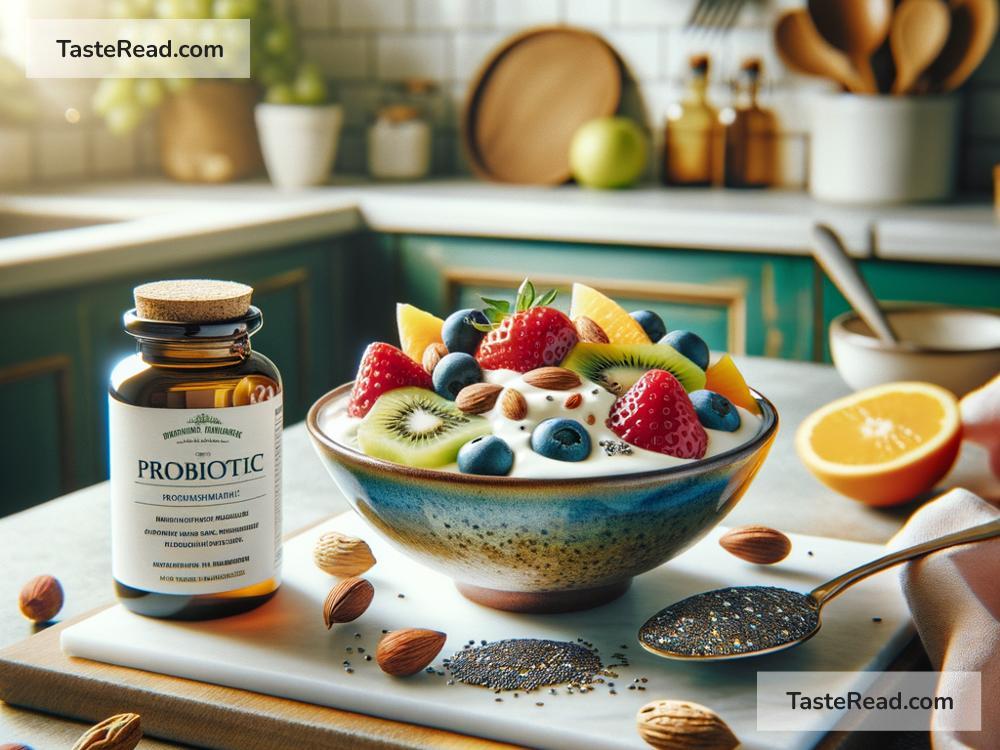The Role of Probiotics in Immune Health
In recent years, probiotics have gained a lot of attention as a natural way to support health and well-being. You’ve probably seen them labeled on yogurt containers, dietary supplements, or even drinks. But what are probiotics? And more importantly, what role do they play in keeping your immune system strong? Let’s break it down in simple terms.
What Are Probiotics?
Probiotics are live microorganisms, often referred to as “good” or “friendly” bacteria, that provide health benefits when consumed in the right amounts. These helpful bacteria naturally live in your body, particularly in the digestive system. Some common types include Lactobacillus and Bifidobacterium, which are often found in fermented foods like yogurt, kimchi, and sauerkraut.
The idea behind probiotics is simple: adding more of these good bacteria can help balance the bacteria in your gut, supporting your health in various ways.
The Gut-Immune System Connection
To understand how probiotics help your immune health, it’s important to know the special role your gut plays in immunity. In fact, experts estimate that about 70% of your immune system is located in your gut.
The gut is home to trillions of bacteria, collectively called the gut microbiome. While some of these bacteria can be harmful, many are beneficial and help keep your system running smoothly. A balanced microbiome is essential for a healthy immune response.
When your gut microbiome is balanced, it acts as a defense system, fighting off harmful germs and keeping inflammation under control. On the other hand, an imbalanced gut (caused by stress, poor diet, or illness) can weaken your immune system, making it harder for your body to fight infections.
How Probiotics Help the Immune System
Probiotics work like little helpers that strengthen your gut and, in turn, support your immune health. Here are a few ways they do this:
-
Maintaining Balance in the Gut
Sometimes, bad bacteria can grow in your gut and throw the microbiome out of balance. Probiotics help restore harmony by increasing the number of good bacteria, reducing the risk of infections and inflammation. -
The Fight Against Pathogens
Harmful bacteria and viruses try to invade your gut. Probiotics help protect the gut lining, making it harder for these bad guys to get through. Essentially, probiotics act as a protective barrier. -
Regulating Immune Responses
Probiotics have a calming effect on your immune system. They can reduce unnecessary inflammation, which is a common problem when the immune system overreacts. This is particularly helpful for people with autoimmune diseases, where the immune system mistakenly attacks healthy tissues. -
Promoting Antibodies and Immune Cells
Probiotics stimulate the production of antibodies and immune cells that are used to fight off infections. They act like a boost for your immune army, giving it extra tools to stay strong.
Scientific Evidence
While probiotics are often marketed as a health miracle, it’s important to look at the scientific evidence behind these claims. Research has shown promising results about their effects on immunity, but it’s not a one-size-fits-all solution.
For example, studies have found that certain probiotic strains, like Lactobacillus and Bifidobacterium, can reduce the severity of common colds and decrease the frequency of gastrointestinal infections. Other research suggests probiotics could help regulate allergies or improve symptoms of inflammatory conditions, such as irritable bowel syndrome (IBS).
It’s important to note that different probiotic strains work in different ways, so the effectiveness of probiotics often depends on the type you’re consuming and your individual health needs.
Adding Probiotics to Your Diet
No need to rush to the store for supplements—probiotics can easily be added to your diet through everyday foods. Some common sources include:
– Yogurt: Look for labels that say “contains live and active cultures.”
– Kefir: A fermented milk drink packed with probiotics.
– Fermented Vegetables: Kimchi, sauerkraut, and pickles are great options.
– Miso: A traditional Japanese paste made from fermented soybeans.
– Tempeh: Another soy-based food, often used as a meat alternative.
If you’re considering probiotic supplements, consult with a healthcare provider to ensure you’re choosing the right strain and dosage for your needs.
Are Probiotics Safe for Everyone?
In general, probiotics are safe for most people, but there are exceptions. Immunocompromised individuals or those with certain health conditions should use probiotics cautiously, as they could potentially cause infections. Always talk to a healthcare provider before making major changes to your diet or taking supplements.
Probiotics: Not a Magic Cure
It’s worth remembering that probiotics aren’t a cure-all for immunity. While they are a helpful tool, a healthy immune system requires a holistic approach. Eating a balanced diet, exercising regularly, sleeping well, and managing stress are all necessary components of strong immune health.
Final Thoughts
Probiotics play an important role in supporting the immune system by keeping your gut healthy and balanced. Whether you’re eating probiotic-rich foods or taking supplements, these tiny organisms can make a big difference in your overall health when used wisely.
Now that you understand the connection between probiotics and immune health, consider making them a part of your daily routine. Your gut—and your immune system—will thank you!


